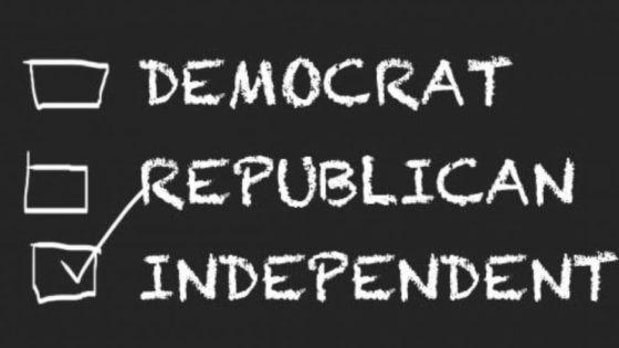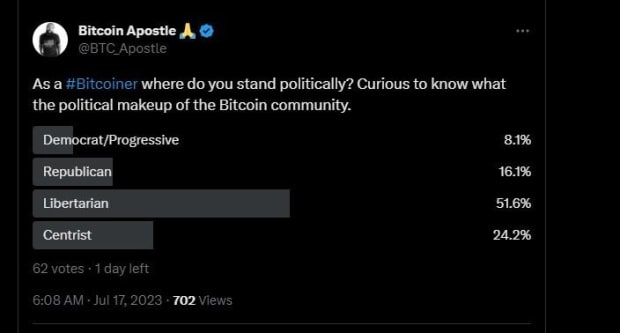This is an opinion editorial by Robert Hall, a content creator and small business owner.
The United States has two major political parties: the Democratic Party and the Republican Party. These parties are basically diametrically opposed to the other. As of late, both sides have drifted to the extreme edges of the political spectrum to a point where they can’t agree on a basic set of facts about America. Both parties essentially live in two different worlds and can hardly speak to one another. This is what political polarization looks like.
This polarization has resulted in serious problems for the country. For many of us, nothing ever seems to change from administration to administration. I wonder if anyone can anyone honestly say with a straight face that things haven’t ultimately stayed the same, from presidents George Bush to Joe Biden.
The United States government is still overspending to the tune of trillions of dollars per year and stealing the future from our kids and grandkids to pay for social security, medicare and military bases overseas which are needed to protect the dollar as the reserve currency of the world.
The people at the top of this pyramid are incentivized to keep the system going for as long as possible. This is why Bush, Barack Obama, Donald Trump and Biden all march to the same drum once they get into office. The ultimate goal is to keep the money printer going for as long as possible because, once the music stops, it’s all over for the rich and powerful. They will be blamed for the calamity that will unfold.
Many Americans understand this dynamic at some level and are surely tired of the partisan warfare, preferring a government that works and is not too intrusive. This bears out in a recent poll conducted by Gallup. The poll found that 49% of Americans identify as political independents. Simultaneously, 25% identify as Republicans and 25% identify as Democrats.
Moving On From The Politically Entrenched

According to the Annie E. Casey Foundation, 260 million people in the U.S. are over the age of 18 and therefore eligible to vote. If you take half of this number and put those people in the “politically-independent” camp, then that’s 130 million people who must be dissatisfied with both political parties and are looking for new solutions to their problems.
Will these politically-independent voters become Bitcoiners overnight? No, but with the right message, I think many of them can learn and begin to understand how powerful Bitcoin is and the problems it can solve. Bitcoin smashes the false, “red versus blue” narrative into a million pieces, never to be reconstituted again.
As such, the political climate in the U.S. today offers a massive opportunity for Bitcoiners to speak to a group of people ready to hear the message of hope that Bitcoin brings to the world.
For the other 50% of voters who are more-deeply entrenched in the narratives that the Democrats and Republicans are disseminating, honestly, I don’t know if they will take the time to understand Bitcoin. I hope they do, for their own sakes, but I don’t have much faith that they will. They are too caught up in the red versus blue dichotomy to see that it’s a false narrative and that both primary parties collude to keep third parties off the ballot across the U.S.
But what about followers of a third political party, whose ideal might more closely align with Bitcoin? I conducted a Twitter poll to investigate the political leanings of the average Bitcoiner. I had a feeling that the respondents would lean heavily Libertarian. The results confirmed what I thought to be true:

This was just an impromptu poll on Twitter, but I would suspect that the larger numbers wouldn’t vary too much from these results. It is probably safe to say that many within the Libertarian party either own bitcoin or have heard about it. If the U.S. were full of Libertarians, we would have massive adoption right now, but we don’t, and that is because people who identify as Libertarians represent just a small fraction of the population.
It should be no surprise that Libertarians make up a tiny portion of the electorate but make up a large majority of Bitcoin holders. Unfortunately, from what I’ve seen, the creators of Bitcoin content tend to make content that appeals to the Libertarian crowd, not to the vast majority of Americans, many of whom are politically independent.
The bottom line is that Bitcoin adoption among hardcore cypherpunks, anarchists and Libertarians is essentially tapped out. If mass Bitcoin adoption in America is going to move forward, our messaging must change to appeal to more middle-of-the-road types of open-minded people. As Americans wake up to the problems with our political dichotomy, these increasingly-independent thinkers are who we need coming into Bitcoin.
This is a guest post by Robert Hall. Opinions expressed are entirely their own and do not necessarily reflect those of BTC Inc or Bitcoin Magazine.
Source: Bitcoin Magazine - Bitcoin News, Articles and Expert Insights